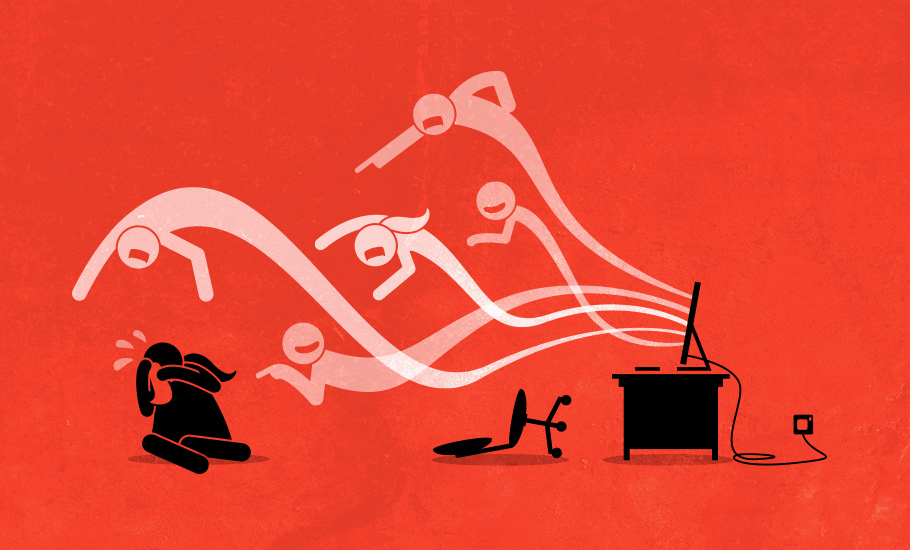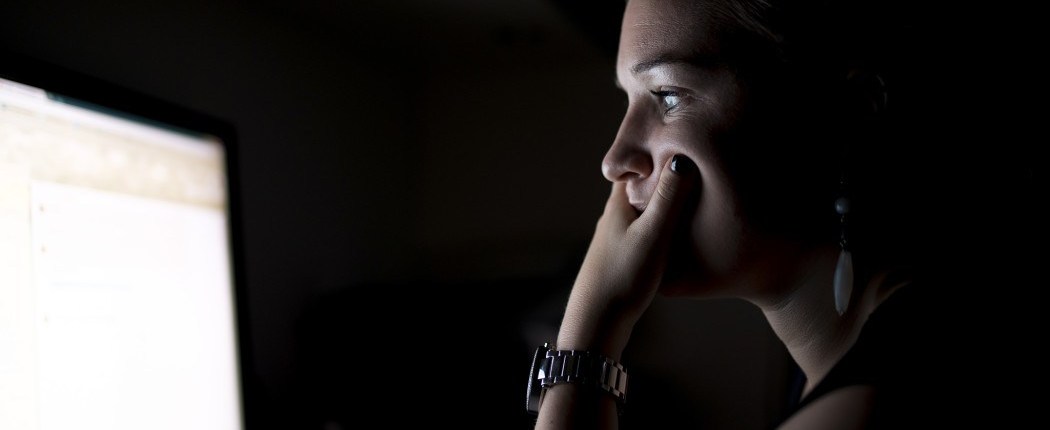
- Home
- India
- World
- Premium
- THE FEDERAL SPECIAL
- Analysis
- States
- Perspective
- Videos
- Sports
- Education
- Entertainment
- Elections
- Features
- Health
- Business
- Series
- In memoriam: Sheikh Mujibur Rahman
- Bishnoi's Men
- NEET TANGLE
- Economy Series
- Earth Day
- Kashmir’s Frozen Turbulence
- India@75
- The legend of Ramjanmabhoomi
- Liberalisation@30
- How to tame a dragon
- Celebrating biodiversity
- Farm Matters
- 50 days of solitude
- Bringing Migrants Home
- Budget 2020
- Jharkhand Votes
- The Federal Investigates
- The Federal Impact
- Vanishing Sand
- Gandhi @ 150
- Andhra Today
- Field report
- Operation Gulmarg
- Pandemic @1 Mn in India
- The Federal Year-End
- The Zero Year
- Science
- Brand studio
- Newsletter
- Elections 2024
- Events
- Home
- IndiaIndia
- World
- Analysis
- StatesStates
- PerspectivePerspective
- VideosVideos
- Sports
- Education
- Entertainment
- ElectionsElections
- Features
- Health
- BusinessBusiness
- Premium
- Loading...
Premium - Events

Online threats: Why the potential rapists walk unleashed
While social media platforms fail to regulate violent content and rape threats and the police show helplessness, Indian women have every reason to feel unsafe both online and offline.

For Chennai-based Shalin Maria Lawrence, being vocal on social media comes at a huge mental cost—rape threats, cyberstalking and constant harassment by trolls sliding into her timeline and inundating her with abusive content. A social activist and writer, Lawrence has been subjected to all kinds of harassment and threats online. “The moment you post your opinion on any particular issue,...
For Chennai-based Shalin Maria Lawrence, being vocal on social media comes at a huge mental cost—rape threats, cyberstalking and constant harassment by trolls sliding into her timeline and inundating her with abusive content.
A social activist and writer, Lawrence has been subjected to all kinds of harassment and threats online. “The moment you post your opinion on any particular issue, the floodgates of hate and abuse suddenly get unleashed,” she says.
While Lawrence and many other women like her are under no illusion that rape and death threats are new, she says the ‘culture’ of silencing women with rape and violence has been there for long.
“And technology cannot change mindsets.”
If anything, things have worsened in the age of social media in digital India. From well-known women journalists to politicians, celebrities and even common women, anyone who is vocal on social media finds herself at the receiving end of potential rapists and harassers.
It’s like women who dare to voice their opinion, especially against the patriarchal, religious norms, dominant caste and religion, must also be prepared to face such rape threats on an everyday basis, Lawrence says. The fact that such cyberhate, she adds, causes significant social and psychological harms is often overlooked. More often than not it also has reputational and economic costs. Many in the past have been forced to quit not just social media but their jobs as well to escape violence.
“It’s difficult to explain how all that stays with you permanently. Those creepy visuals, those rape treats detailing what kind of weapon they want to put inside your body, or for how long and how many men would rape you… Although you put up a brave face, every time you are passing a lonely stretch of road, all those threats suddenly make you recoil with fear.”
Gendered violence online
With the internet becoming an increasingly important part of every Indian’s life, the toxic online behaviour is only becoming a new normal. Yet the problem of online gendered violence and harassment is often overlooked.
Although Bollywood celebrities, including Sonam Kapoor, initiated a movement titled ‘Stop targeted abuse and harassment of women on social media’ against rape threats, murder and acid attack on women, not much seems to have changed.
https://twitter.com/noorzayyubi/status/1314448595429453825
Indian women on social media have been issued rape threats for something as innocuous as naming their favourite actor to pointing out poor governance. Of course, there is a special kind of manufactured outrage against those criticising toxic masculinity and Hindutva.
The latest profoundly disturbing cases include rape threats to the daughters of cricketer MS Dhoni and Tamil actor Vijay Sethupathi. While Dhoni’s daughter was targeted for the poor performance of her father’s team—Chennai Super Kings in the ongoing IPL—Sethupathi received a threat on social media that his daughter will be raped if takes up the lead role in Sri Lankan spinner Muttiah Muralitharan’s biopic 800.
A 17-year-old from Gujarat has been arrested for issuing rape threats to Dhoni’s daughter. In Sethupathi’s case, the Tamil Nadu police have traced the rape threat issued against the actor’s daughter to a man in Sri Lanka and lodged a case.
However, Lawrence complains that the police are not always as prompt. “I have filed at least three complaints about rape threats and sexually explicit messages. Not even a single case was registered. The cyber cell (of police) takes at least a month to respond,” she says.
Police inaction
Most women at the receiving end feel either the police don’t have the time (read intent) or the resources to deal with the number of threats on social media.
In fact, when the cyber cell responded to one of her complaints after three months, she forgot what exactly she had complained about.
“By that time, the screenshot of the rape threat had gone missing and so was that particular post on social media,” she says.
Lawrence goes on to allege that police, instead of taking action against the abusers, indulge in moral policing.
“They asked me to stay away from social media instead of taking action against the abuser. So, now I have come to a point where I’m not going to file a complaint since the police will also behave more or less like an abuser, asking me to shut up.”
Actress Kasthuri Shankar, who has acted in Tamil, Telugu, Malayalam and Kannada films, too was a target of such rape threats for her views on social media.
“Earlier, people used to hide their faces among the crowd and shout abuses and run away. Now, they are coming to social media,” the actor says.
While many suggest going off social media as a solution to avoid male predatory behaviour, Shankar doesn’t quite agree, and rightly so. “But why should I leave social media when I did not do anything wrong here?” she asks.
When Shankar was threatened and trolled for the first time, she filed a complaint with the Chennai Police.
“There was absolutely no action taken against anybody. They just inquired and asked me to be quiet on social media for some time rather than trying to find out the culprits. Maybe if we have enough influence, the concerned social media account could be suspended. But even that is a herculean task,” she adds.

Sharing her experience, Shankar says that one of the social media platforms even asked her to go and file a defamation suit in court and then approach them.
“I can file a case only if I know the real identity of the person. But these social media platforms are not ready to give out the identity of the account users who abuse and issue threats,” she adds.
Shankar feels it is this anonymity that has emboldened the harassers to carry on their business.
According to a video jockey working in a YouTube channel in Chennai, she and her friends filed at least 14 complaints against an online abuser who continues to post vulgar messages against them.
“However, only three cases have been registered while 11 other complaints were not even taken up for inquiry. Although he used the most offensive language against us, cases were registered under such mild sections that he could easily secure bail. So, we have given up on the police,” she says.
Cyber crime officers, however, point out a much deeper problem behind their ‘inaction’.
According to them, social media platforms such as Twitter, Facebook and Instagram don’t cooperate with the police and the response time too is very late.
“We have the technology to trace the location of the people, but we cannot find the identity or remove the content from the platform. So, we require the help of the social media platforms,” an officer of the cyber crime cell of Chennai Central Crime Branch tells The Federal on condition of anonymity.
While social media platforms fail to regulate violent content and the police show helplessness, Indian women have every reason not to feel safe both online and offline.
A social psychologist, who herself has faced rape and death threats online for her political views, says these virtual threats more often than not turn real. “We have seen so many crimes because of cyber stalking. It’s easy for a faceless man who threatens me with rape on social media to trace me. After all, he knows my identity, but his true face is hidden from everyone.”
While she dreads going into the details of the psychological toll on the victims of such harassment, what scares the young psychologist most is the digital mob mentality.
“Someone will dig out your personal details and put it out, someone will call you names and question your religious beliefs, someone else will post dirty morphed pictures. The notifications of hate just don’t stop flashing.”
It’s like the entire universe of trolls, both men and women who share the same beliefs, is hell bent on conspiring against you, she says.
